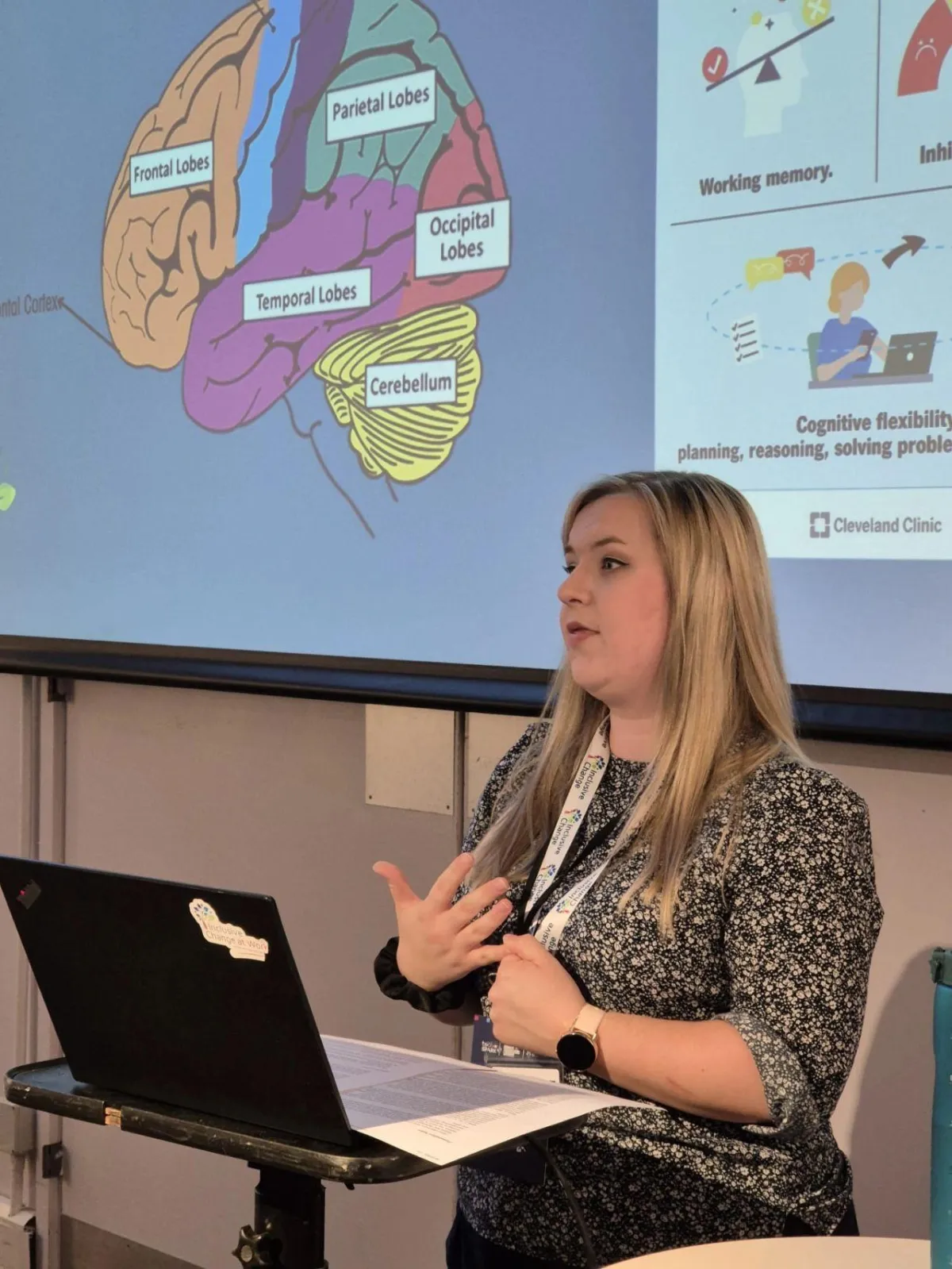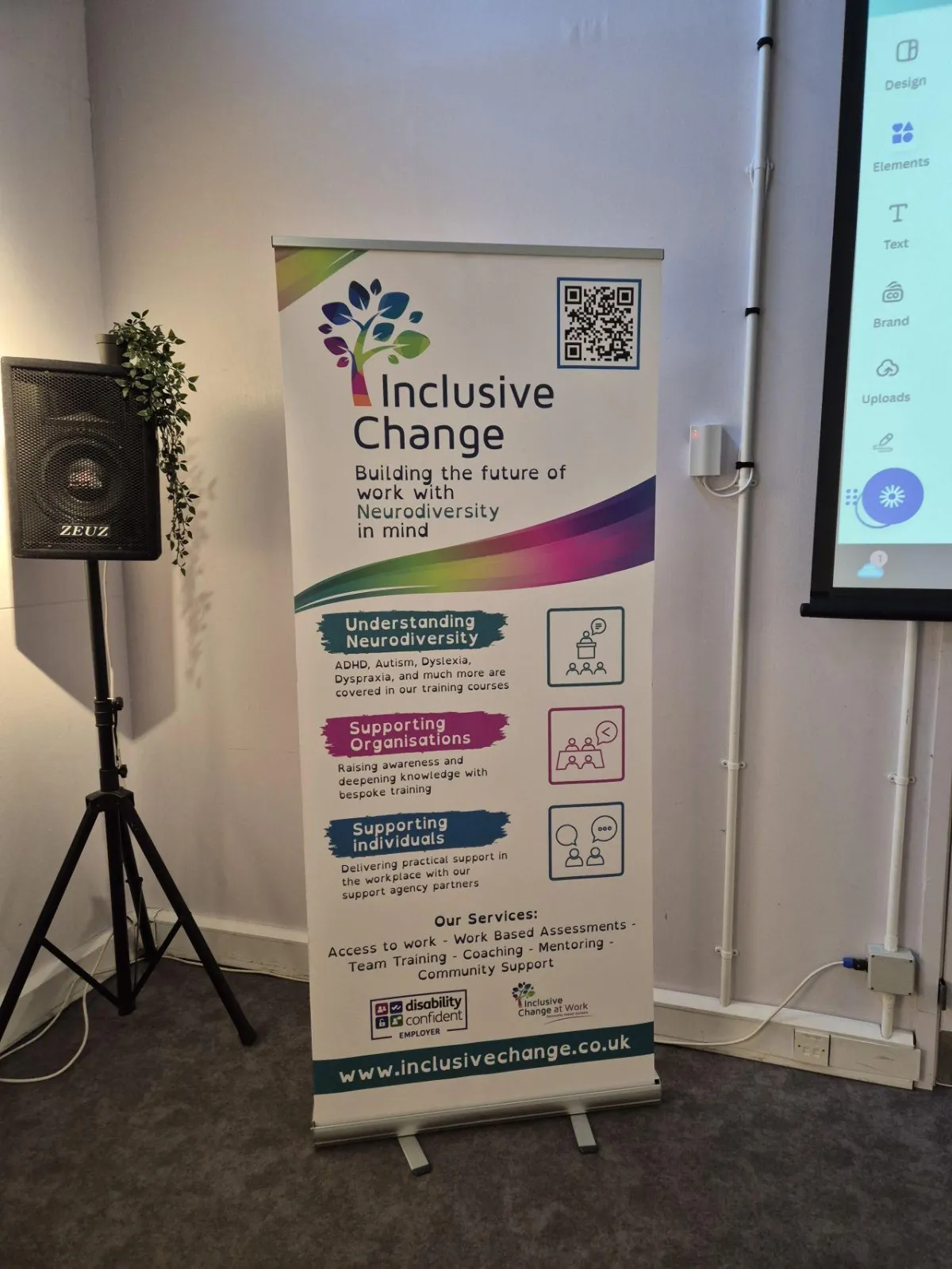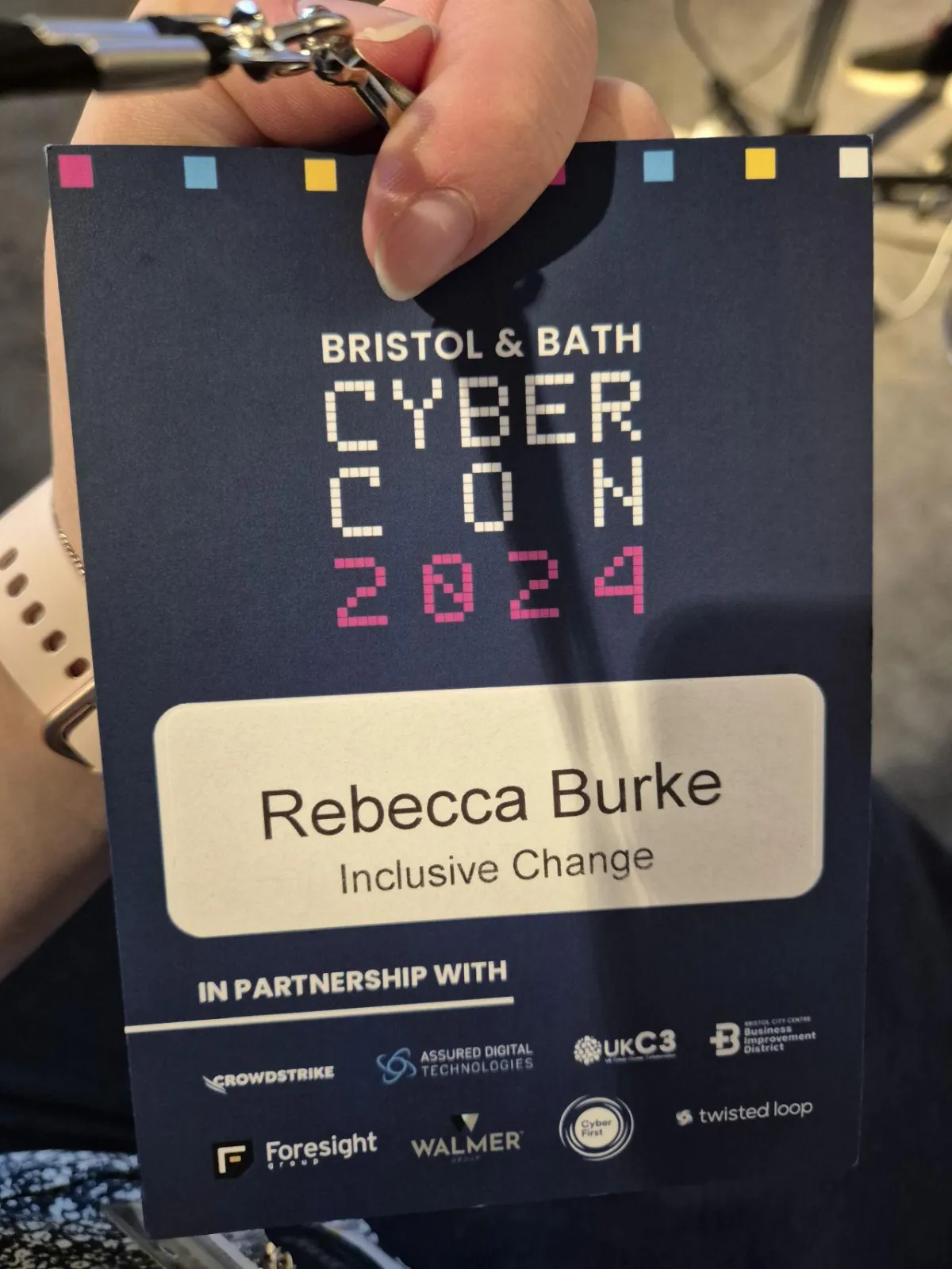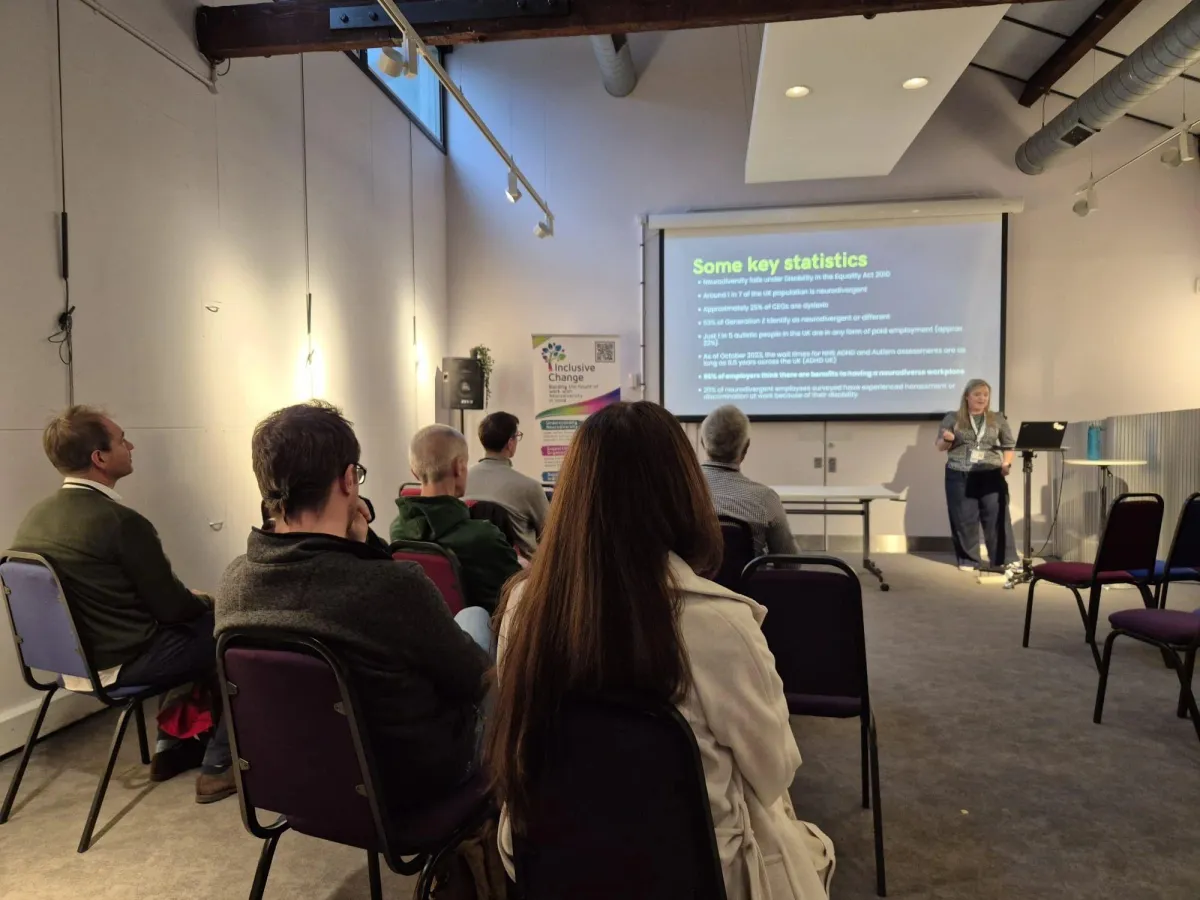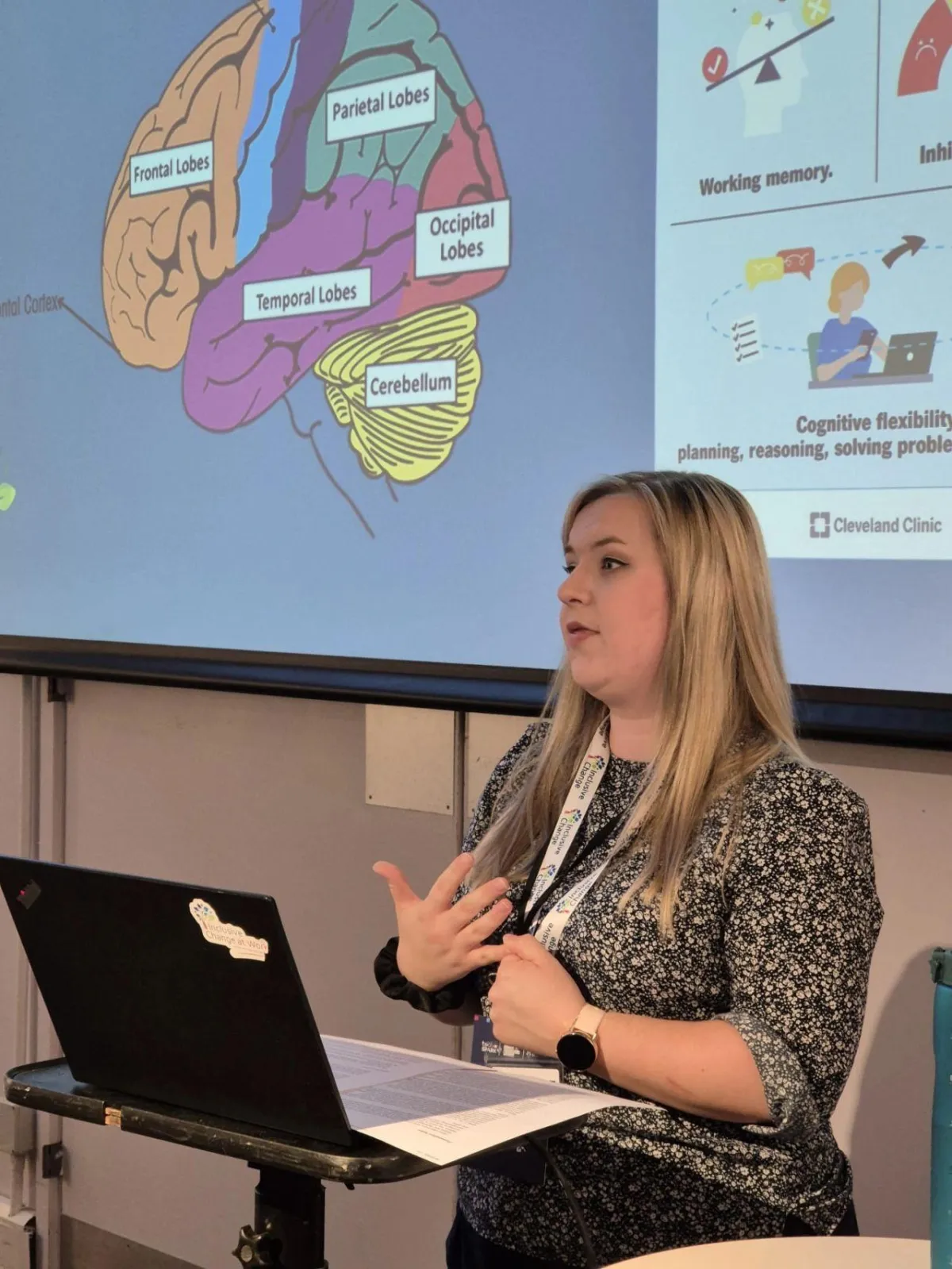
Becca Burke
Speaker
Empowering Neurodiversity in the workplace
Hi, I am Becca!
I'm Becca, a passionate advocate for neurodiversity and understanding ADHD in the workplace. Living with ADHD (combined presentation) myself, I bring a unique blend of professional experiences and personal insights to the conversation about creating inclusive, productive work environments. Equity in the workplace is especially important for us as neurodiverse folk; if given the adjustments and support we need, we can not only survive, but thrive at work.
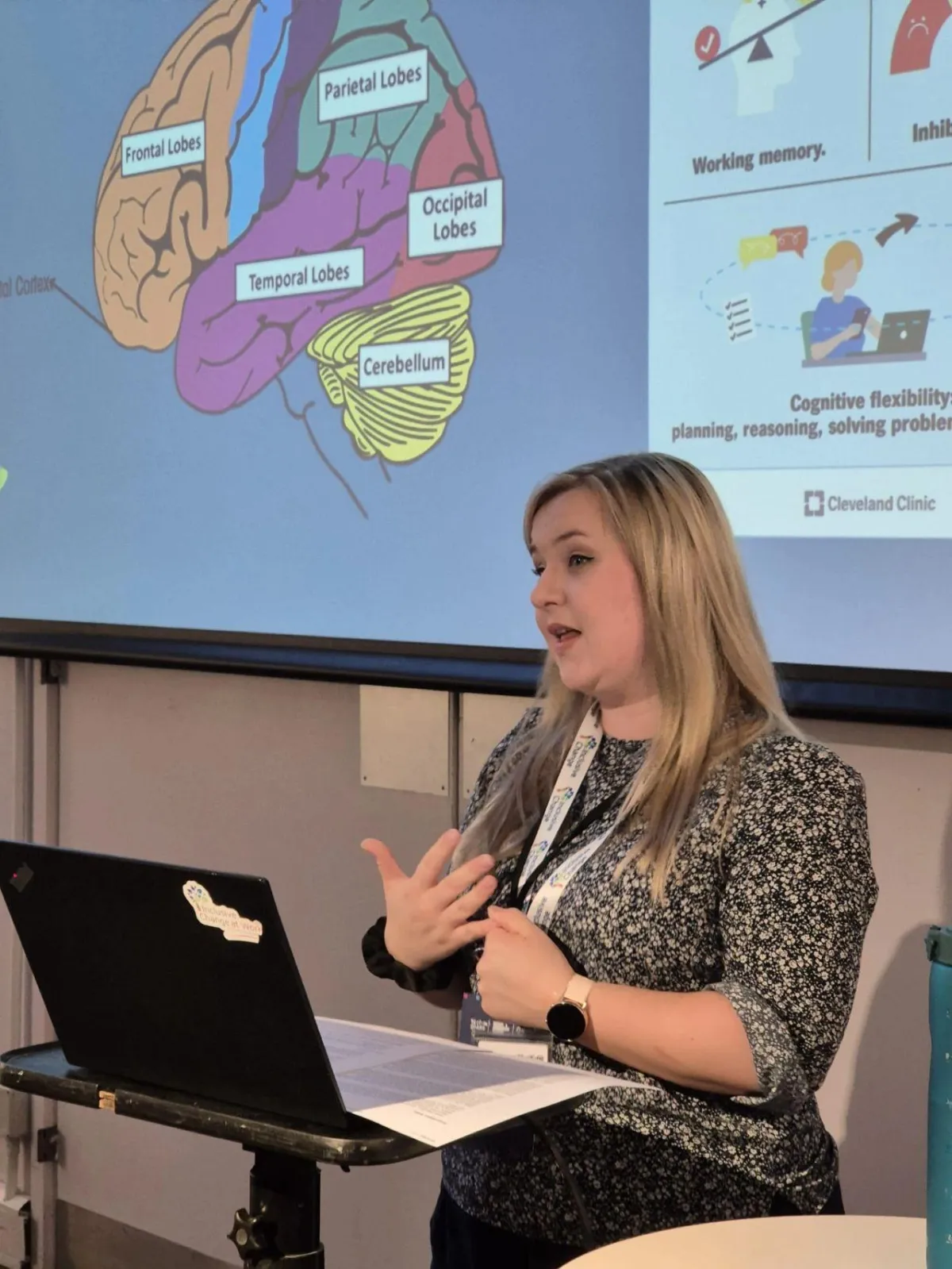
My professional journey
My career path has been varied, in true ADHD style! From my early days in customer relations to roles in sales and account management, I've always excelled in building relationships and understanding people's needs. My time at a FTSE 100 bank gave me a solid foundation for navigating large organisations and the politics of the office environment, and I then had to adapt quickly to the drastic changes of the Covid-19 Pandemic Lockdown. It was during this time, recognising the disruption to my routine, hyperfocusing on work outside of my core hours, and my inability to finish any tasks to completion, that I realised something wasn’t working for my brain.
Throughout my career, I’ve recognised that I was struggling, but never quite understood why. I saw so much of my own journey in the struggles I heard from other neurodiverse people, and I wanted to find a way that I could tangibly make a difference. After my own diagnosis in early 2024, I was inspired to become an ADHD Coach with Leanne Maskell's ADHD Works, and led to me being headhunted for Inclusive Change Ltd as Support Specialist.
My Areas of Expertise
- ADHD awareness and management strategies
- Education and training around ADHD for businesses
- Job coaching neurodivergent clients at work
- Rejection Sensitive Dysphoria awareness/training
- Business process improvement for neurodiverse workforce support
- Working with clients as a neurodiversity educated Virtual Assistant
- Neurodivergent talent recruitment and retention
- ADHD Works Level 1 Coach
Popular Discussion Topics
- Rejection Sensitive Dysphoria (RSD) & ADHD
- ADHD and the menopause
- ADHD screening in prisons
- ADHD and neurodiversity co-occuring traits
- ADHD celebrities
- Current research development
Living with ADHD
- Physiological difference in the brain
- ADHD facts and figures
- Common misconceptions
- Lived experience
- Interactive Q&A
ADHD in the Workplace
- Common challenges and strategies
- Strengths ADHDers bring to the workplace
- Challenges for us in the workplace
- Helpful strategies
- Reasonable Adjustments
- Equality Act 2010 protection
My Speaking Style
I pride myself on being engaging, insightful, and empathetic. My presentations blend personal anecdotes, research-based strategies, and interactive elements that leave audiences both informed and inspired. I like making complex topics accessible, and providing concrete, implementable solutions to common workplace challenges.
Why Choose Me?
At Inclusive Change, we understand your ‘Why,’ and meet you where you are on your journey as a business. Whether you're looking to educate your HR or leadership teams, or provide valuable insights to your entire organisation, I can help. I don’t believe that we as neurodivergent people need to change who we are to succeed; with the right support, education and awareness, we can be ourselves without compromise.
Work with me
Ready to transform your understanding of ADHD in the workplace?
Would you like me to run a workshop for you?
Get in touch using my calendar below.
Read my blog here: https://inclusivechange.co.uk/blog/b/adhd-and-me
Read more
The blog
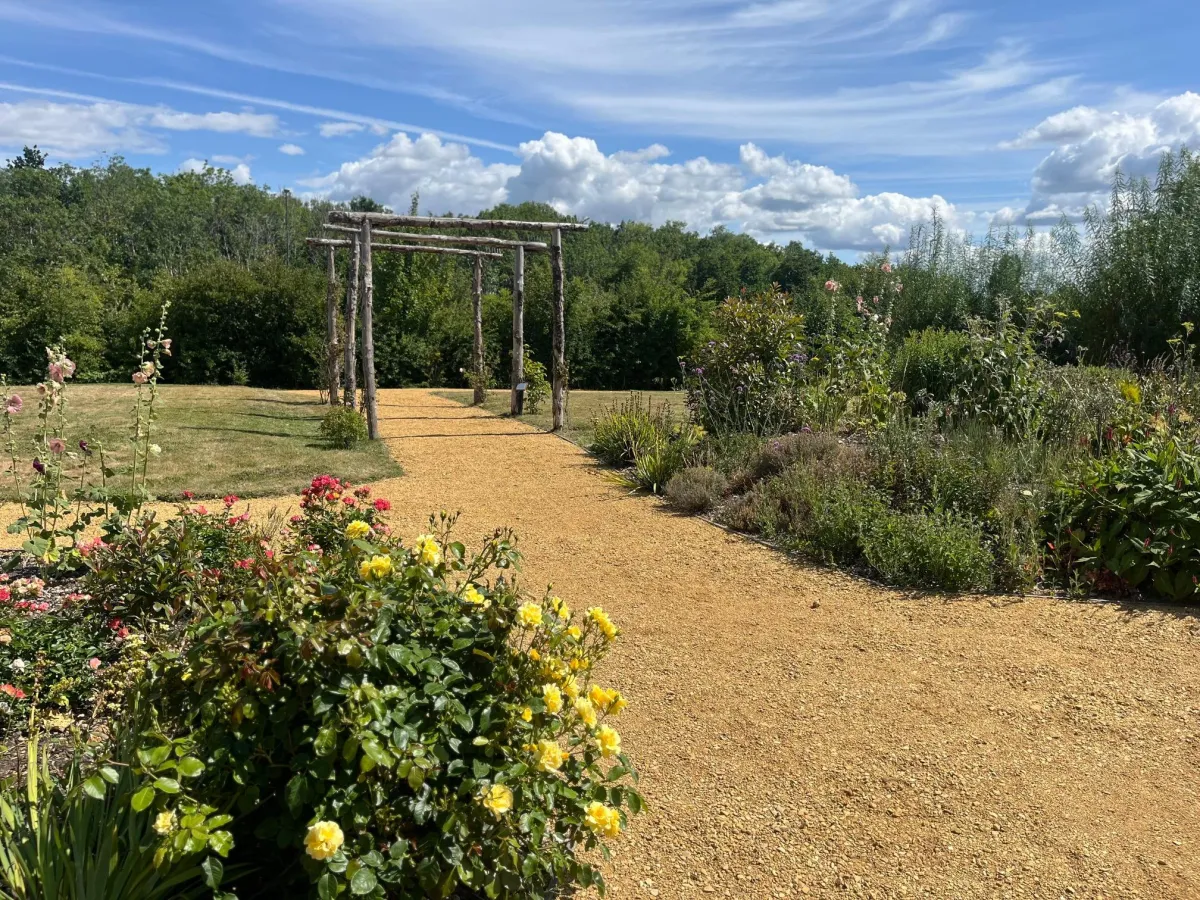
Neurodivergent Burnout: The Hidden Struggle Behind Overwork
We are halfway through 2025, and yesterday it caught up with us. The warm weather, disrupted sleep, the pressure of full days, and changes in the team all added up to a difficult moment. But today is a fresh start. With burnout in mind, we are resetting, taking proper breaks, stepping outside with a cup of tea, walking a lap of the building, and reminding ourselves of the value in planning ahead, preparing well, and occasionally just slowing things down.
Burnout doesn’t look the same for everyone. Breathe HR’s recent research confirms that taking time off isn’t just a nice-to-have, it’s essential: 81% of UK employees report rising burnout when they can’t step away from work (breathehr.com). But for neurodivergent individuals, the challenge runs deeper and recovery can take far longer.
More Than Exhaustion: Complex Layers of Symptoms
Burnout is physical, mental, and emotional fatigue from prolonged stress (medicalnewstoday.com). Neurodivergent burnout, however, brings additional and often profound symptoms:
Sensory overload: lights, sounds, textures become intolerable in ways typical burnout doesn’t address.
Loss of skills: people report losing essential functions, communication, self-care, daily tasks.
Executive dysfunction & inertia: difficulty planning, switching, starting, or completing tasks—affecting autonomy.
Shutdowns & meltdowns: overwhelmed brains may withdraw completely or erupt emotionally.
All these can compound typical burnout symptoms, like exhaustion and irritability making everyday life feel like climbing a mountain, impacting often already disturbed sleeping patterns, limited self-care and poor mental health.
Masking: The Silent Energy Drain
People with autism, ADHD, dyslexia, and other neurodivergences often mask: suppressing their natural behaviours to appear “normal” in neurotypical environments. This constant effort depletes energy daily (psychologytoday.com). Masking accounts for why neurodivergent burnout often starts earlier and can be more persistent.
Institutions vs. Individuals
Burnout is systemic, not individual. The pressures of life and work, mixed with inadequate holiday usage and time to relax and switch off, can drive burnout. Neurodivergent professionals face the same pressures, layered with demands to conform with even busier brains.
Recovery Can Take Months
While neurotypical recovery may only require rest and activities good for the soul, neurodivergent burnout often needs extensive time to rebuild depleted sensory thresholds, executive functions, and emotional resilience. It’s more than time off: it's rebuilding from the roots, which is why it's more important than ever to make sure there is time for self care.
What Employers and Teams Can Do
Promote genuine breaks
Breathe HR data shows only 35% of UK workers take all their holiday, and 57% work while on leave. Make disconnection the norm, not the exception. A supportive organisation will encourage true unplugging, consider setting a no-email policy during leave and no work device usage to avoid those tempted to ‘take a quick look!’.
Create neuro-inclusive cultures
Train teams to understand masking, sensory needs, and executive differences. Workplace adjustments like flexible working, sensory-friendly breakout spaces and working environments, can reduce the need to mask. These are organisational perks, they are necessary for well-being and you will receive a return in productivity.
Early detection & personalised support
Burnout in neurodivergent employees does not always show up as absenteeism. It can involve sudden skill loss, communication difficulties, shutdowns, or increased masking as individuals try to cope with overwhelm. Managers need training to recognise these less visible signs and respond early, not with performance measures but with curiosity and care. A private check-in and a willingness to adapt working conditions can make the difference between long-term disengagement and sustainable support. Personalised responses are essential, because neurodivergent burnout requires a different kind of understanding.
Flexible recovery pathways
Recognise that neurodivergent recovery may require phased, tailored plans, gradual re-entry, sensory breaks, peer support, and professional help. Don’t expect a one-size-fits-all solution.
Encouraging Your Team (and Yourself)
For neurodivergent individuals: Validate your experience. Burnout isn’t weakness, it’s an inevitable cry for structural change. You deserve time, space, and accommodations to rebuild fully.
For allies and managers: Be proactive. Create a culture where taking breaks is a signal of health, not slacking. Advocate for neuro-friendly environments.
If you would like to understand more about the impact of burnout, supporting a neurodivergent colleague or neurodiversity awareness training, please get in touch.

(photo credit, beautiful gardens are The Brightwell Centre where are offices are based)
Some of the Companies Inclusive Change Have Worked With So Far


Column Header
Lorem ipsum dolor sit amet consecetuer lorem ipsum
Organically grow the holistic world view of disruptive innovation
At the end of the day, going forward, a new normal that has evolved
Column Header
Lorem ipsum dolor sit amet consecetuer lorem ipsum
Organically grow the holistic world view of disruptive innovation
At the end of the day, going forward, a new normal that has evolved
Column Header
Lorem ipsum dolor sit amet consecetuer lorem ipsum
Organically grow the holistic world view of disruptive innovation
At the end of the day, going forward, a new normal that has evolved
Inclusive Change Ltd
The Brightwell, Bradbury House
Wheatfield Drive
Bradley Stoke, Bristol
BS329DB
Copyright 2025 - Inclusive Change Ltd
Companies House: 12412464
VAT NO: 352 1564 17
ICO Reg: ZB081779
UK Register of Learning Providers: 10090652

